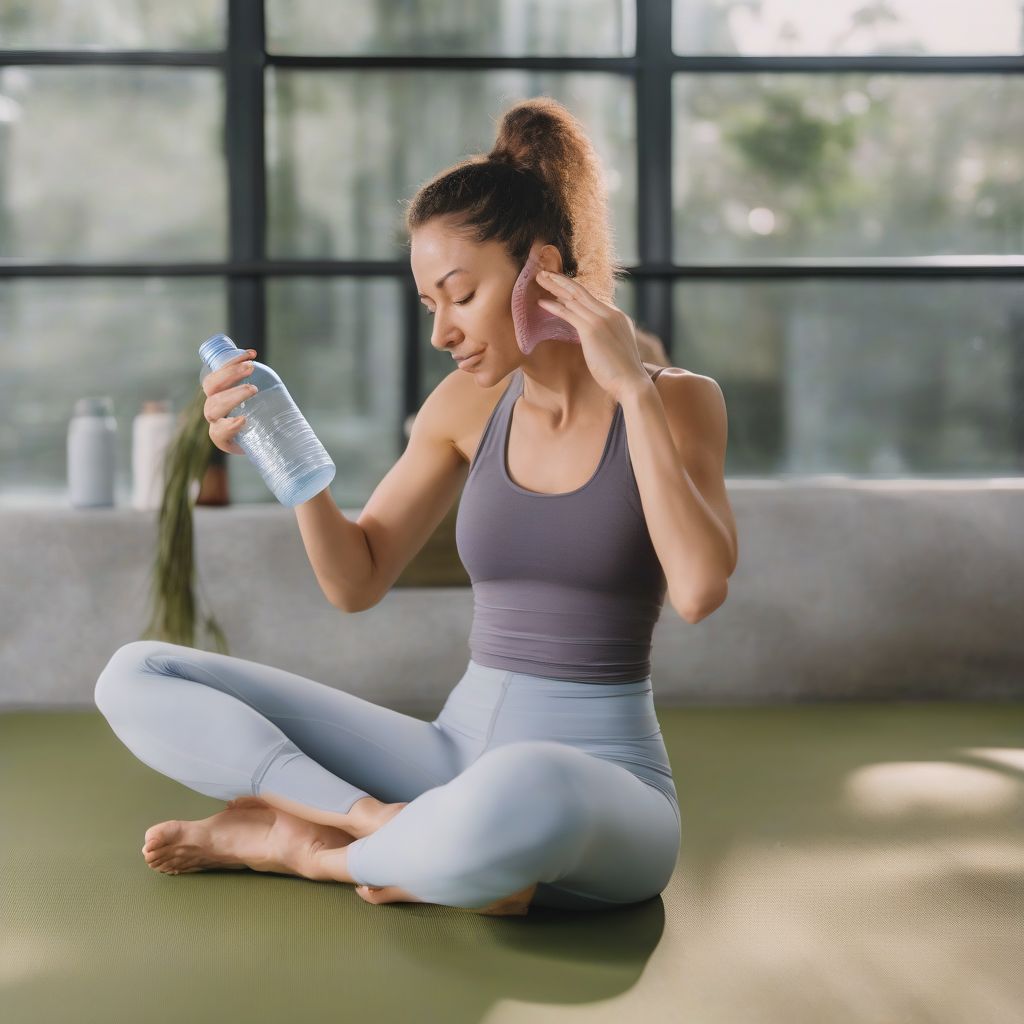Imagine this: you’re crushing your workout, feeling energized and unstoppable. But as your session goes on, you start feeling sluggish, your muscles cramp up, and your performance takes a nosedive. What happened? You forgot to prioritize proper hydration.
As a certified nutritionist and meal prep coach, I can’t stress enough how crucial hydration is for your fitness journey. It’s not just about quenching your thirst; it’s about optimizing your body’s performance, from the inside out. Let’s dive deep into the how-tos of staying hydrated for peak fitness.
Why Guzzling H2O is Your Workout’s Best Friend
Water is essential for almost every bodily function, especially when you’re pushing your physical limits. Here’s how staying hydrated can take your fitness game to the next level:
1. Fuels Your Muscles and Prevents Cramps
Think of your muscles like sponges: they need water to function properly. When you’re dehydrated, your muscles can’t contract and relax efficiently, leading to fatigue, reduced strength, and those dreaded cramps. Proper hydration ensures your muscles have the fluids they need to work their best.
2. Regulates Body Temperature
Ever notice how your body heats up during a workout? Sweating is your body’s natural cooling system, but it also means you’re losing fluids. Staying hydrated helps replace those lost fluids, keeping your internal thermostat in check and preventing overheating.
3. Boosts Energy Levels and Endurance
Dehydration can make you feel drained and lethargic, even before you hit the gym. Water helps transport nutrients and oxygen throughout your body, fueling your cells and giving you the sustained energy you need to power through your workouts.
4. Supports Recovery and Reduces Soreness
After an intense workout, your body needs to replenish fluids and repair muscle tissue. Proper hydration aids in this process, helping to flush out toxins and deliver essential nutrients to your muscles, which can translate to faster recovery and less post-workout soreness.
 Hydrated After Workout
Hydrated After Workout
Hydration Strategies for Peak Performance
Now that you know why hydration is non-negotiable, let’s talk about how to optimize your fluid intake for your workouts:
1. Listen to Your Thirst – and Don’t Wait for It!
Thirst is your body’s way of signaling dehydration, but by the time you feel thirsty, you’re already lagging behind on your fluid needs. A good rule of thumb is to sip water consistently throughout the day, especially before, during, and after your workouts.
2. Know Your Sweat Rate
Everyone sweats differently, so there’s no one-size-fits-all hydration plan. Factors like climate, exercise intensity, and individual physiology all play a role. A simple way to gauge your sweat rate is to weigh yourself before and after a workout. For every pound lost, aim to drink 16-24 ounces of fluids to replenish.
3. Time Your Hydration Right
- Pre-Workout (2-3 Hours Before): Aim for 17-20 ounces of water.
- During Your Workout (Every 15-20 Minutes): Sip on 8 ounces of water.
- Post-Workout: Continue to hydrate based on your thirst and activity level.
4. Consider Electrolytes for Intense or Prolonged Exercise
When you sweat, you lose not just water but also electrolytes like sodium and potassium. These electrolytes are crucial for muscle function, nerve signaling, and hydration. For intense or prolonged workouts (over an hour), consider electrolyte-rich beverages like coconut water or low-sugar sports drinks to replenish these essential minerals.
5. Don’t Forget About Food!
Fruits and vegetables are naturally rich in water and electrolytes, making them excellent choices for hydration. Watermelon, cucumber, spinach, and oranges are all great options to incorporate into your diet.
Quenching Your Fitness FAQs
Let’s address some common questions about hydration and fitness:
Q: How do I know if I’m adequately hydrated?
A: The color of your urine is a good indicator. Pale yellow or straw-colored urine typically indicates proper hydration, while darker yellow or amber can be a sign of dehydration.
Q: Can I drink too much water?
A: While rare, it’s possible to overhydrate. This typically happens with excessive water consumption in a short period. Listen to your body and spread out your fluid intake throughout the day.
Q: Are sports drinks better than water?
A: For most moderate-intensity workouts, water is sufficient. However, sports drinks can be beneficial for intense or prolonged exercise to replenish electrolytes. Just be mindful of added sugars.
Hydration: Your Secret Weapon to Fitness Success
Remember, proper hydration is just as important as your workout routine and nutrition plan. By following these tips and listening to your body’s signals, you’ll be well on your way to crushing your fitness goals and feeling your absolute best. Stay hydrated and stay empowered!
[amazon bestseller=”hydration water bottle”]
